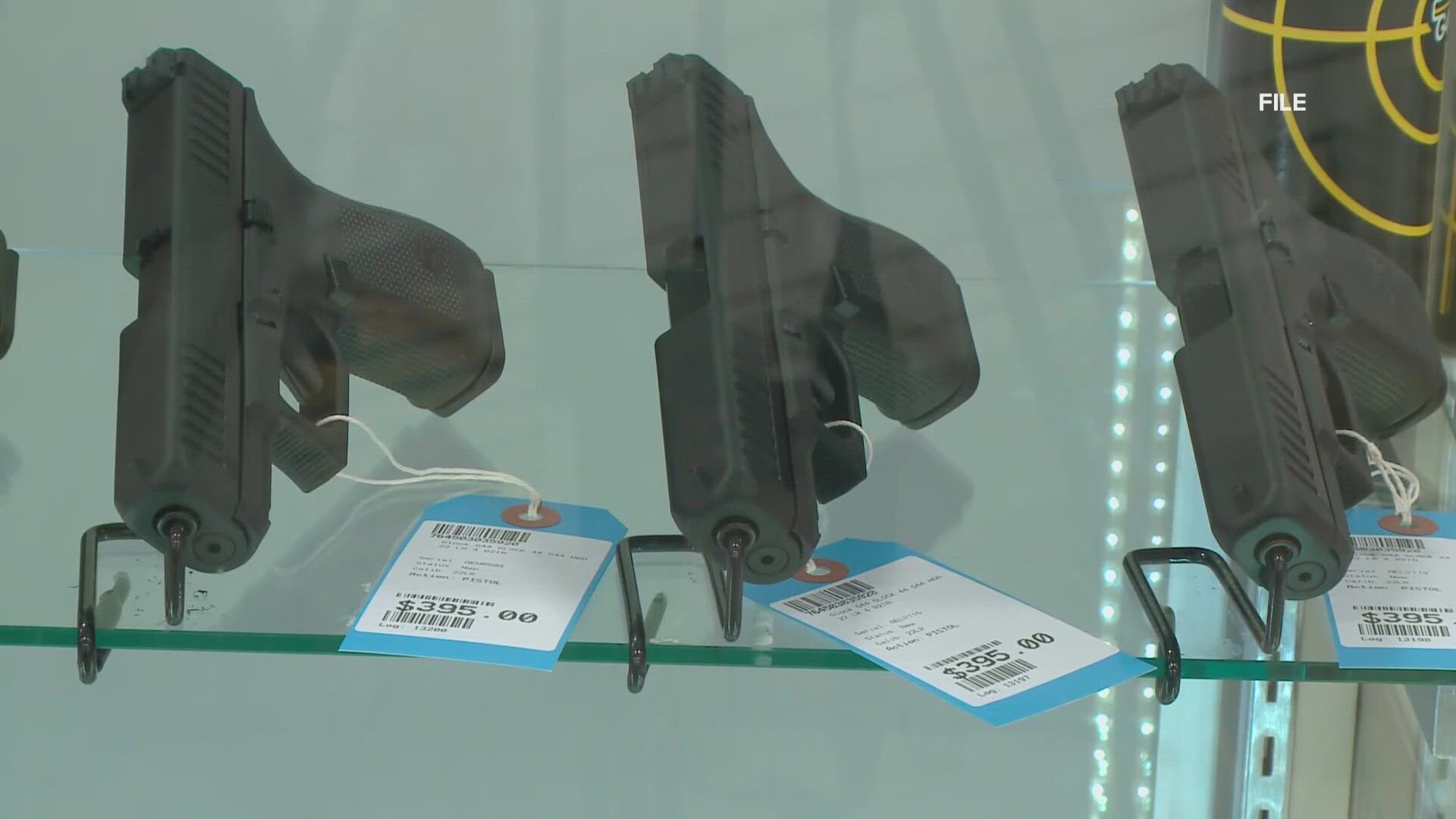MAINE, USA — The debate about new gun legislation on the national scale has been reignited after 19 elementary school children and two teachers were shot and killed in Uvalde, Texas.
Efforts are underway in the House and the Senate, and Mainers are re-examining the state's own gun laws.
"It's one of the loosest gun-regulated states in the country," University of Maine law professor Margaret Groban said Thursday.
"I wish that Maine had a red-flag law, which would allow family members to go to court and petition that firearms be taken away from their loved one," she said. "We don't have that. We have a yellow-flag law. ... It's not as good as the red-flag law, but it is better than nothing."
The yellow-flag law, unique to Maine, gives police the ability to petition the courts to temporarily take away deadly weapons from someone who's been deemed a threat to themselves or others by a medical professional.
Since the yellow-flag law was instituted, it has been used 23 times statewide by law enforcement, according to the Maine attorney general's office.
Sen. Susan Collins, R-Maine, hopes to make the yellow-flag law a federal law.
"I think that Maine got it right," Collins said Thursday. "In Maine, you involve the medical professional, the police officer, and the judge. They, all three, are going to be involved, and there are due process protections built in. The order is good for a year with one chance to challenge it during a year, but then it has to be reviewed and renewed."
The yellow-flag law in Maine, according to The Press Herald, is underutilized because of the short supply of medical professionals who are supposed to assess if someone is mentally fit to own a firearm.
"It can be difficult to find a medical professional," Collins said. "I'm working on that front, too, to try to increase the supply of mental health providers in our country, but if you don't have a medical assessment then you have a situation where a judge or a police officer who are very well-intended but don't have the expertise to make this judgement having to do so. That's why I think Maine got it right."
But legal analysts, like Groban, said the short supply of medical providers necessitates a stricter law nationally.
"I think family members are the ones who know firsthand whether or not a family member is in crisis and should not be in possession of firearms," Groban said.
Maine has additional laws that make it a looser state for gun regulation, according to Bates College professor Michael Rocque.
"You have no magazine limit, you have no permit to carry, no background check for private sales," Rocque said.
"It's an interesting mix where we have something in place that could be useful for reducing gun crime or gun violence in general and then we have others that are very lax gun laws, for sure," Rocque said.
The lack of a magazine capacity in Maine is something Sen. Angus King, I-Maine, said he's working on.
"In Maine, for example, if you go hunting you can have a magazine with five bullets," King said. "One in the chamber and five in the magazine. We don't need magazines with 20, 30, 40, 50 rounds."
King was also a co-sponsor of a bill last year to make red-flag laws the national standard. That would have allowed law enforcement or a judge to take away someone's weapon without the need for a medical professional.
Meantime Rep. Chellie Pingree, D-Maine, is also a co-sponsor of a bill to establish extreme risk protection orders nationwide.
"I think the number of shootings we are having around the country, ... I'm knocking on wood, but no one can assume that their community isn't vulnerable to this," she said. "No one knows where it's going to happen next. All we can predict is that it will happen next, so it's important to take action as soon as we can."
The House of Representatives will take up the bill Pingree co-sponsored the week of June 6.

